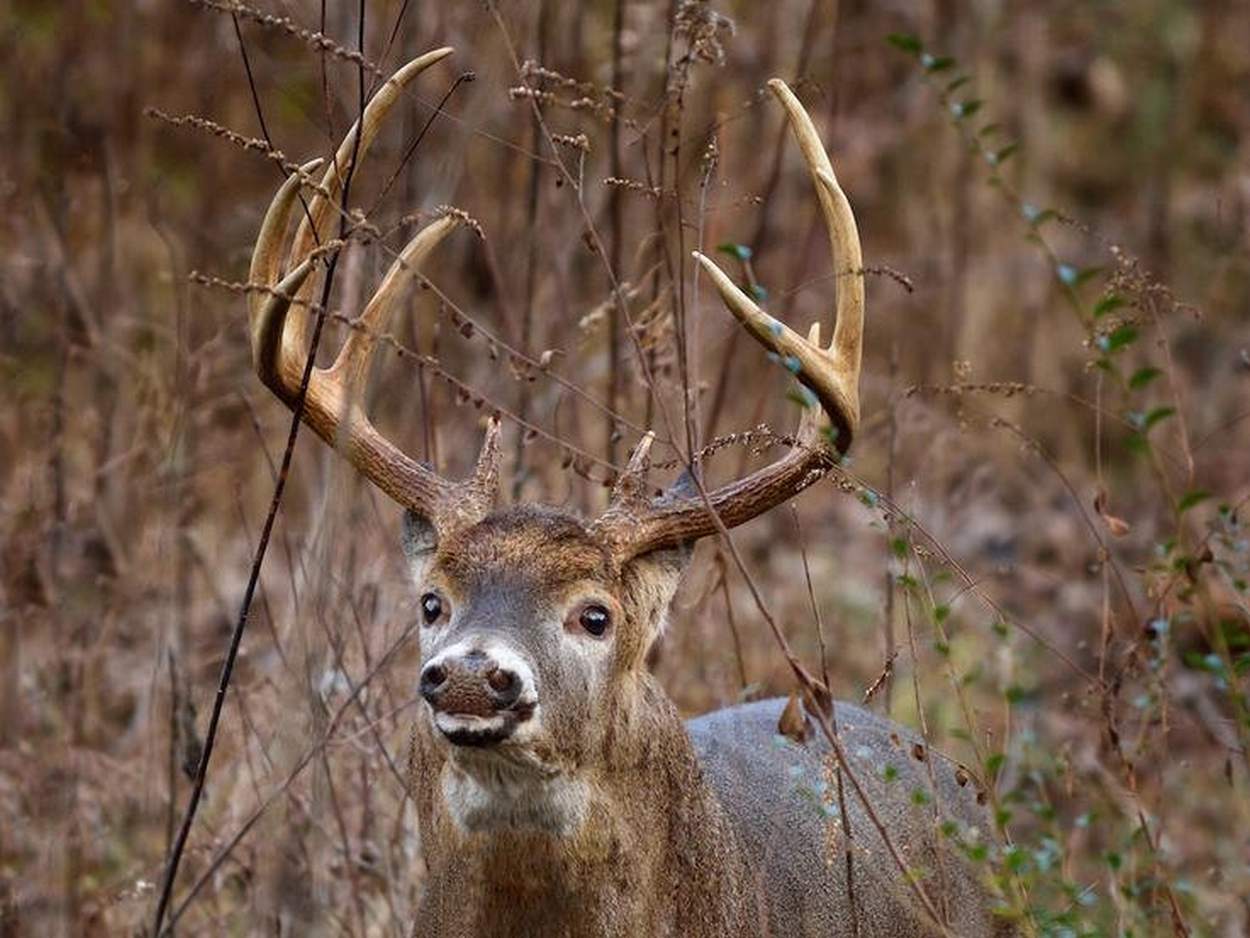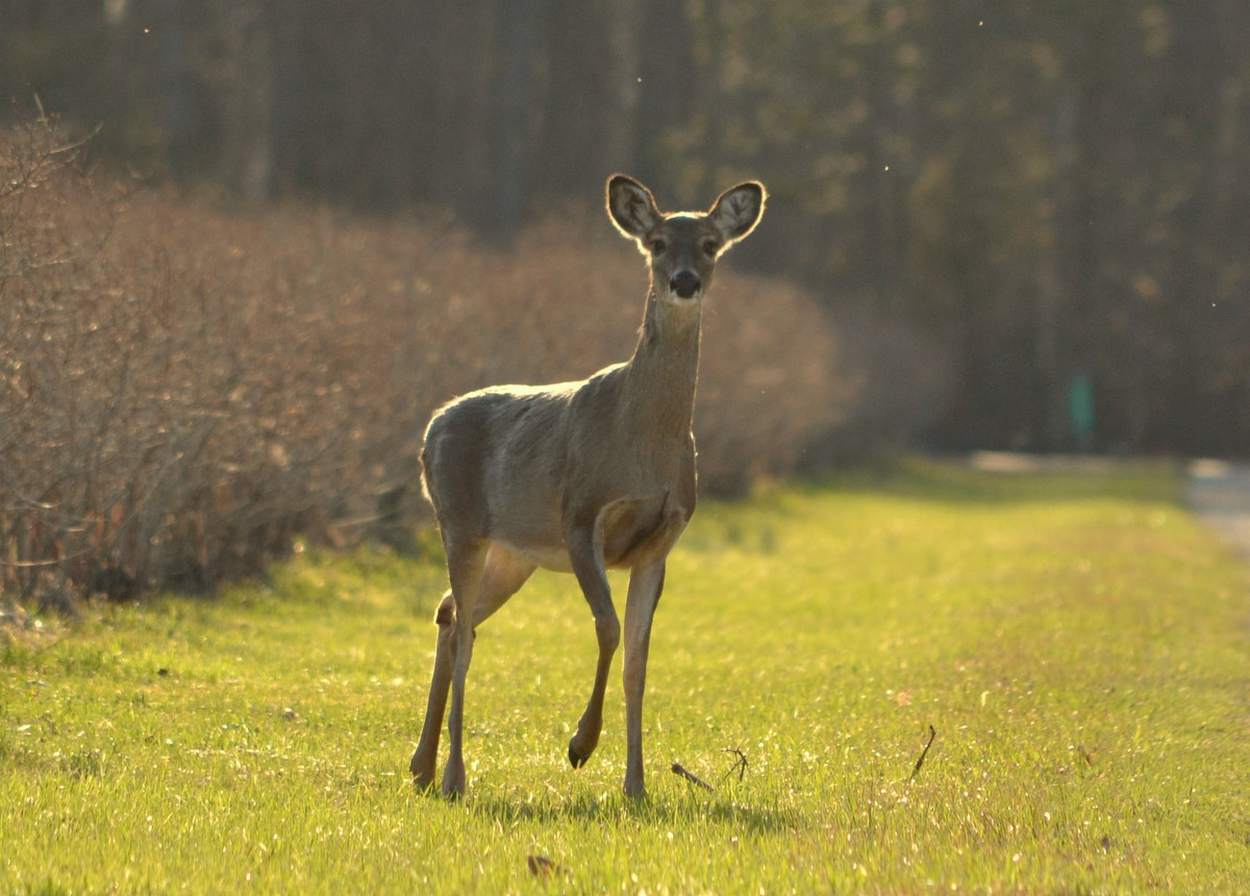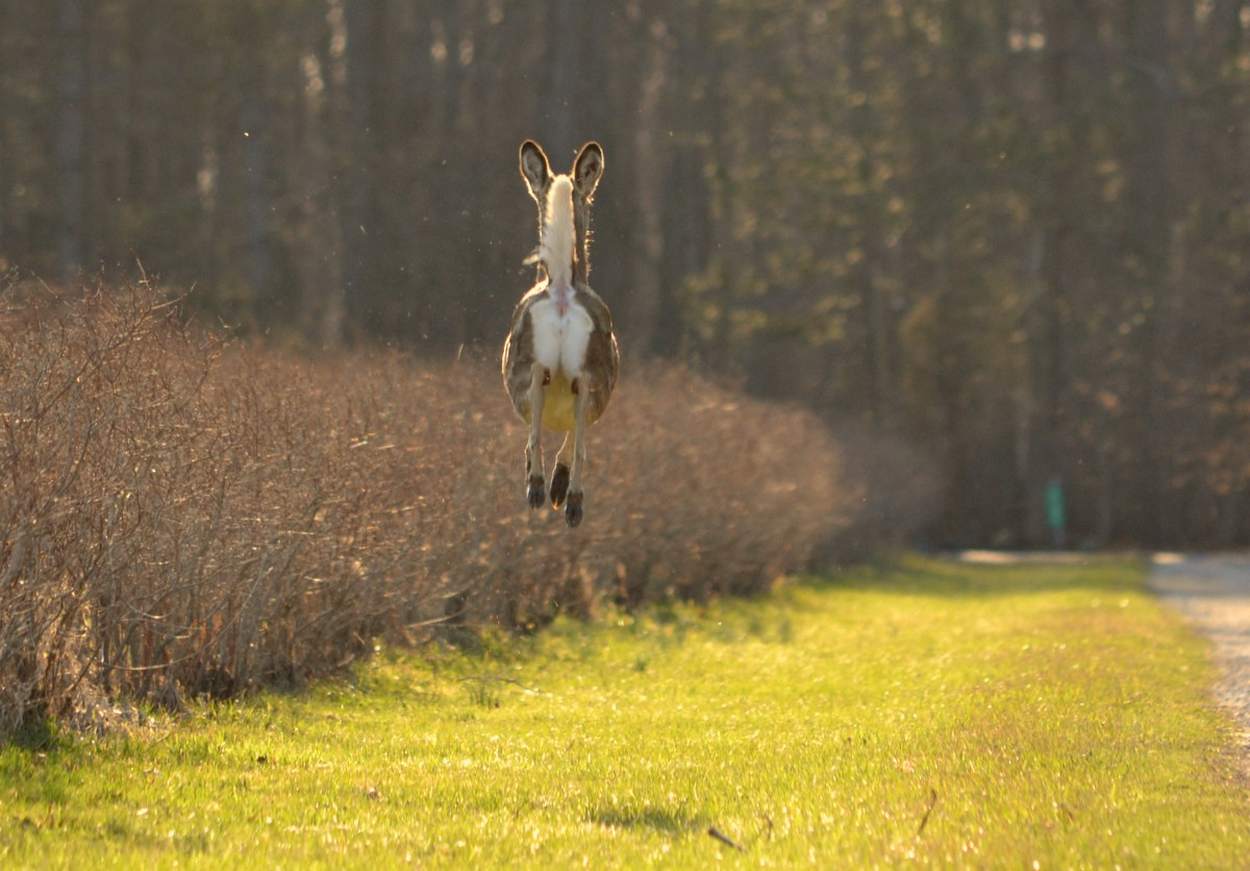Snorting, Blowing: What Gives?
There is nothing worse than hearing a loud, lung-collapsing deer blow while deer hunting. Ugh, why do deer blow? It’s an annoying, but effective sound (at least for the deer). This is so true when bowhunting. This is when you need deer to close the distance due to the range limitations of archery equipment. Ironically, a loud blow by a white-tailed sucks all the air out of my sail.
It can be downright unnerving when a buck or doe breaks complete silence by blowing loudly, especially at close range. If you’re like me, it’s usually at this point during a hunt that you’re ready to pack up your gear, climb down out of the stand and head for home, tail between your legs.

Why do Deer Blow? Alert!
Deer really only blow for one reason, to alert other deer in the area that something is out of the ordinary. Though I’ve heard many deer do this over the years, I’ve come to realize that their actions are not always in response to me.
There are numerous things in a deer’s environment that can cause it to react with that attention-grabbing, nasal-clearing sound. Coyotes, dogs or anything else that they perceive as a threat. Deer can also snort when concerned. Regardless of why the deer is alarmed, the result may end in an unproductive hunt if your goal is to tag a deer.
Deer Communication
Source: Blow or snort (all deer, all seasons). The deer forcibly expels air through its nostrils like a greatly magnified sneeze. The deer blows when it detects danger at a distance. These blows are drawn-out “whooshes” repeated several times. Snorts are single, very short, explosive sounds given as the deer turns to run.
There may be three reasons for these sounds. The noise warns all deer that something is radically wrong. The “sneeze” clears the nasal passages, and helps the deer sniff the air better. The sound may startle a predator into revealing its location or leaving the area.

Why do Deer Blow? Sup?
Like some of you reading this article, I can tell you from experience that deer will blow when they see or smell something that is not right. More often than not, it means the deer that you are hunting smell you. It’s frustrating — especially since so many hunters are quite meticulous about scent control and hunting under favorable wind conditions.
The best I can offer is to remember that it’s not always you. It’s sometimes you, but now always.

Avoid Detection
Scent control is not necessarily about being “scent-free” but about being low in human scent. White-tailed deer have one heck of a sniffer on them so they can be hard to fool, but it’s not impossible. Keeping your scent level down can trick them into believing that you are much further away than they think you are.
You see, it’s all about scent molecule density. You want to have very few molecules (that smell like you) floating around in the air. Do all that you can to control scent. Then, the next time you’re hunting and hear a deer blow, you can be confident that it’s not at you. So, why do deer blow? It’s a form of deer communication that alerts the herd, but hopefully they aren’t talking about you.
No comment, but a question. Does both male and female deer blow when something is awry?
Sonny, both whitetail bucks and does can blow if they see or smell something out of place. That said, does tend to blow and bucks typically snort, but most of the time bucks will just turn and head right back to where the came from (where it was safe) if they can’t see the intruder.
John, what you have written is true. Deer do not always blow, or have to. They have the option to just leave the area, which is often what bucks do. The older does tend to blow more often than not, primarily I think because they are part of a family unit that includes prior year’s fawns and/or current year’s fawns.
Thanks for the anecdotal evidence.
John, glad you found it helpful.
My great Uncle Clifford told me that deer feed down wind, generally, and that deer blow when they cannot smell or identify the cause of their alarm. They know something is there but they don’t know what it is. If they smell you they flee w/o blowing. Makes sense to me.
When deer blow – do they leave urine or any other glandular scents in the area to warn other deer?
TC, there is no indication that deer leave scent to warn other deer. A deer does have a scent associated with its body, but they can not vary the scent based on environmental stimulus. White-tailed deer will blow loudly and, of course, raise the “white flag” on their rump (to possibly show others which whey they are going) when leaving the area.
Bruce, I am not a horse expert by any means, but hopefully someone that is while chime in on the subject. Good question.
Shot at a deer, watched it lurch straight up off all fours. Deer went in to woods and started blowing/snort. This continued on for 20 minutes or so. Do wounded deer act this way? I quietly left area after dark. Do I go look for deer or not?
Don, sounds like you missed. Deer do not typically snort for long periods of time after being shot. The animal knew something was wrong after the shot/all the noise and likely moved into a position where it picked up your scent.
I just recently read a story where a hot doe was chased into a field by a buck. The doe went back into the woods with the buck losing sight of her…. she then began to blow. Is this indicative of hot does being chased. Do they alert a buck by blowing and saying “I’m over here”?
ballistic_trep, during the whitetail breeding season it is not uncommon to see bucks in hot pursuit of the opposite sex. A doe can use auditory cues to attract a mate, but the sound is usually more of a BLEAT or BELLOW.
Can you calm a deer after it starts blowing? I’ve read using a fawn grunt works but haven’t tried yet.
Joe, it may help to use some type of call, possibly a contact grunt of some type. Of course, if the deer can plainly see you or is downwind (and has picked up your scent) then it will be difficult to calm.
Love the article. I was looking up “Why do deer blow”. Anyway, I just came outside to sit on my front porch and these two deer came running in. We get a lot of deer traveling through the mountains here so nothing I haven’t seen before. However, this deer just started blowing, jumped up and looked like it was acting like a bull and ready to take aim for me.
However with my spo lights on I was really doubtful it could see me. So I grabbed the phone and started to take pics. Well, that flash seem to only tic him off more. I honestly thought he was going to come at me and jump me and here I am just had surgery yesterday and can’t even walk fast if I wanted to. Wow what an experience. I had never heard deer make that really weird blowing noise. Thank you so much for enlightening us.
George, you’ve got an interesting story. Interesting in the fact that the deer was so aggressive. Typical response is flight, but in your case it sounded as if this deer was ready to dance… fight!
Buck with Bow,
It’s not ideal to hear a deer blow, but that’s part of bowhunting. It’s part of trying to close the distance on a whitetail, and a deer’s best defense is its well-tuned nose. A deer snorting may makes everyone in the woods aware of your presence, but your outing is not necessarily over. Ideally, the deer downwind of you move on, or the wind goes in your favor, and then you can still recover and get in a good sit.
I have been feeding a doe and her twin yearlings for a couple of months to get them through the end of winter. They have gotten used to me filling the feeding bin and stand by watching me rather than darting off when its is still light and I can see them. Last night at 4:15 a.m. I watched the three of them empty the bin and walk off.
I let them walk off and went out and refilled the bin. As I turned away to return to the house one of the deer blew a low blow in a calm way. Within a few minutes all three deer were back at the bin enjoying seconds. Instead of sounding an alarm it seems the one deer was calling the other 2 back to the dinner table.
Regor, thanks for taking the time to share your experience with myself and others. Obviously, there is a lot we do not know about whitetail communication, but it seems that the low blow, as it were, was still a signal to other deer. I suspect the top-ranking deer was letting others know that something was about to go down. And that is was food!